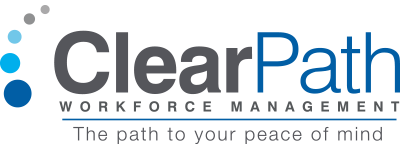The legalization of cannabis or marijuana is transpiring across the US, whether for recreational or medical use. It may seem hard to comprehend but, in 2019, marijuana is legal for medical use in 34 states and the District of Columbia. The District of Columbia and 11 states — Alaska, California, Colorado, Illinois, Maine, Massachusetts, Michigan, Nevada, Oregon, Vermont, and Washington — have adopted the most expansive laws legalizing marijuana for recreational use. 1 Legalization efforts have not slowed, and marijuana use in the United States continues to increase along with it.
According to the U.S. Occupational Health and Safety, employers are in an ambiguous position when tasked with maintaining the productivity of their workplaces, and more importantly, the safety of their employees, their clients, and their data amid surging marijuana use. Unlike other drugs, marijuana’s precarious position between legal and illegal makes it different from other impairing substances. 2
Despite the widespread wave of marijuana legalization in the United States, marijuana remains an illegal drug federally. Thus, marijuana inhabits an in-between zone of legality: legal and illegal at the same time. But while the federal government has generally chosen not to prosecute those who possess and distribute marijuana when in compliance with state laws, it also does not budge on treating marijuana as an illegal drug for purposes of oversight, distribution, federal disability law protection, etc. Federal requirements for drug-free workplaces still require that employees test negative for marijuana along with other illegal drugs.
How State Laws Treat Marijuana Testing in the Workplace
States that legalize marijuana treat the drug in a variety of ways in the workplace. Some protect an employer’s right to maintain a marijuana-free workplace; others make it difficult for employers to regulate marijuana use by employees. This is also complicated by state court rulings, which sometimes add additional protections for marijuana-using employees. Workplace protections are for the most part limited to medical marijuana, with almost no protections for employees who use marijuana recreationally. However, in the 11 states and Washington, D.C., where marijuana is legal for recreational use, the law is still not cut and dried.
States That Permit Discipline for a Positive Marijuana Test
Most state marijuana laws either specifically permit employers to restrict marijuana use by employees or do not mention employers or the workplace at all. When a state marijuana law does not mention employers, the status quo remains in place, which is that employers may test for and discipline for marijuana use in the same manner as other illegal drugs (subject to the requirements of state drug testing laws).
States That Protect an Employee’s Medical Marijuana Use
On the other hand, some states affirmatively protect an employee’s right to use medical marijuana. Some state laws prohibit employers from disciplining an employee for a positive marijuana test alone if the employee is a certified medical marijuana patient. In these states, employees may be disciplined for a positive marijuana test in conjunction with other factors, but a positive test cannot be the sole reason for workplace discipline. This protection does not extend to recreational marijuana use in any state except Maine. An example of this medical marijuana protection is the state of Arizona. Arizona’s medical marijuana statute reads:
“Unless a failure to do so would cause an employer to lose a monetary or licensing related benefit under federal law or regulations, an employer may not discriminate against a person in hiring, termination or imposing any term or condition of employment or otherwise penalize a person based upon either:
- The person’s status as a cardholder.
- A registered qualifying patient’s positive drug test for marijuana components or metabolites, unless the patient used, possessed or was impaired by marijuana on the premises of the place of employment or during the hours of employment.”
Thus, in Arizona, a medical marijuana patient cannot receive workplace discipline for a positive drug test unless he or she was impaired by marijuana during work hours or brought or used marijuana in the workplace. Proving impairment remains an issue, and oral fluid drug testing remains the testing methodology that has the closest link to the recent use of any commercially available drug testing method.
Best Practices for Employers
Because marijuana use inhabits a gray area of the law, it is of utmost importance that employers communicate their marijuana policies clearly to employees. Employees may believe that if marijuana is legal in their state, they are free to use it without consequence. Employers should take care to inform employees of their workplace policy and to apprise them of the consequences of violating that policy.
Employers’ policies should restrict marijuana use to the extent permitted by law. Workplace safety and productivity should be a top priority for employers, and marijuana impairment can have an enormous impact. Employers should not risk a microcosm of this within their workplaces. In all states and all industries, policies must at the very least prohibit marijuana use in the workplace as well as marijuana impairment during work hours or in the workplace.
Additionally, in states where medical marijuana is legal, employers should work with Human Resources or HRO to develop a policy for employees and contingent workers who request accommodation of medical marijuana use for a disability, taking care to comply with state disability discrimination laws.
For more Federal information see:
U.S. Food and Drug Administration:
Drug Enforcement Agency (DEA):
https://www.dea.gov/factsheets/marijuana
For more information on state laws:
http://www.ncsl.org/research/health/state-medical-marijuana-laws.aspx
ClearPath can help relieve the burden of your contingent workers by outsourcing your back-office Human Resources and Payroll functions to our Employer of Record service. Contact us to learn more about how our expert personalized service can let you get back to focusing on your business goals. Work with a leader in the industry for outsourced Human Resources and Payroll functions associated with W-2 and 1099 contingent workers. Let ClearPath be the path to your peace of mind. For other questions about assessing your workforce or conducting a review of your current hiring processes, the ClearPath team can assist you.
This blog article is for general information purposes only and does not provide an in-depth review of employment and state laws. It should not be solely relied upon or substituted for legal or professional advice. Use of the information provided is at your own risk.
Sources:
1 https://www.governing.com/gov-data/safety-justice/state-marijuana-laws-map-medical-recreational.html
2 Occupational Health and Safety, https://ohsonline.com/Articles/2019/03/01/Marijuana-in-the-Workplace
- Written by: Connie Wendt
- Posted on: October 22, 2019
- Tags: EMPLOYER OF RECORD SERVICE, ENGAGING W-2 WORKERS, FORM I-9, FREELANCER, INDEPENDENT CONTRACTOR COMPLIANCE, TEMPORARY WORKER, W-2 Worker Classification, Workforce Classification

